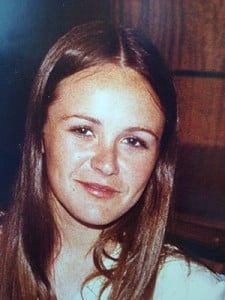16 December 2013
Susie Hincks’ story
I was convinced I was being watched, that there was a camera in my bathroom filming me and that people were sending me threatening messages through television and radio advertisements. I was afraid to go outside during the day. I effectively cut myself off from the rest of the world.
 Susie was diagnosed with a mild form of schizophrenia when she was 28 years old. Unlike many people with schizophrenia, Susie didn’t hear voices however her illness was a lonely and isolating one, in which she suffered from paranoia, delusions and depression. Her illness manifested itself in a lack of attention to her personal hygiene, a debilitating loss of motivation and withdrawal from everyone and everything.
Susie was diagnosed with a mild form of schizophrenia when she was 28 years old. Unlike many people with schizophrenia, Susie didn’t hear voices however her illness was a lonely and isolating one, in which she suffered from paranoia, delusions and depression. Her illness manifested itself in a lack of attention to her personal hygiene, a debilitating loss of motivation and withdrawal from everyone and everything.
Of course, her parents attempted to help her deal with her illness. They took her to two general practitioners where she was diagnosed with depression, however a lack of follow-up only exacerbated the issue.
Back in her flat, socially isolated, Susie rarely cooked or showered and cigarettes became her “best friends”. In fact, Susie says she lost most of her “twenties” during this devastating period.
A chance meeting with a stranger and Susie’s subsequent disappearance from her home for three weeks caused her family immense worry. She was discovered wandering the streets by police who, fortunately, identified her as a missing person. She was taken to an emergency psychiatrist who examined her and then released her – armed with a care/support plan.
I had a total lack of insight which underpinned my self-denial about my condition. I refused to take my medication, so my illness slowly, gradually, became worse. Very fortunately, my mother met a consultant psychiatrist at the Association of Relatives and Friends of the Mentally Ill. This was the critical intervention which led to my involuntary commitment to Graylands Hospital – actually under police escort.
Having been emotionally isolated from family and friends for years, Susie was now finally in an institution where help was readily available.
But, like many people with a mental illness, I refused to take medication. At Graylands, I was given tablets which I would put under my tongue and then spit out in the bathroom. This is very common behaviour. The nurses soon realised what I was doing so I was given liquid medication. My mother visited me every day. After a few days of medication, she couldn’t believe the change in me – I could sit down with her and have a proper conversation, something I hadn’t been able to do for years! I responded well to the medication: my paranoia and delusions were gone and I had more motivation. After years of suffering, I spent five short weeks in hospital and I found myself on the road to recovery.
These days I take a low dose of an anti-psychotic called Abilify and anti-depressants. This regime keeps me relatively stable. I still have problems with motivation and the drugs do ‘flatten’ me a bit but, compared with some people with mental illness who do not respond to any medication, I consider myself lucky.
Susie has the support of her family and friends at and is a passionate believer in research as a means to delivering hope to those in need. Totally convinced that education and humanisation are paramount in changing public perception of mental illness and reducing the stigma associated with it, Susie has spent much time in recent years speaking publicly at universities, schools, community meetings and mental health forums. She has been a Consumer Advisory Advocate at Avro Clinic in Subiaco and is currently a consumer representative for the Centre for Clinical Research in Neuropsychiatry based at Graylands Hospital.
Tags:



